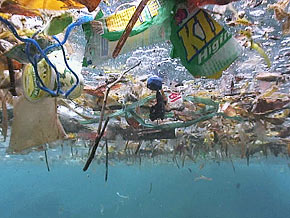7 Tips To Get Good Travel Deals You Might Not Know About
Posted in Travel Tips on January 21st, 2012 by Vagablonding – 3 Comments
I’ve got the travel bug again! While I don’t have the next destination nailed down quite yet, I thought I’d share some of the tricks I use to get the best deals on travel and to save some extra money in the process. The key is to combine these tips for maximum savings.
• 1: Compare Plane Ticket Prices on Kayak.com and Hipmunk.com
Find the best deals on flights through sites like Kayak and Hipmunk, they aggregate rates from many other sites and you can filter and sort them by price, flight length, and plenty more. This gives you a good idea of what rates should be, but don’t buy just yet, because you should combine the next two tips and save some extra cash on that flight…
• 2: Use Sites like FatWallet to Get Cash Back on Flights
After comparing rates on Kayak, try to find the same deal on a third party site like Hotwire. But you’re not done yet, next you should sign up for a free account on FatWallet.com, which lets you get cash back from purchases from a variety of websites, including travel sites like Hotwire, Expedia, and Travelocity. This can be up to 5% of the price of a plane ticket, for a $1000 flight that’s $50!
• 3: Always Use a Credit Card with Rewards or Cash Back
Remember to always use a credit card that has rewards or a cash back program, if not you’re throwing away money for transactions you’ll be making anyway. Plane tickets, advanced hotel purchases, train passes, there are plenty of opportunities to use a card and you’ll get somewhere between 1% and 3% for using the reward card. Add this to the 3-5% from a cashback website and you’ve got an extra 8% off that plane ticket!
• 4: Take Screen Captures of Good Deals to Negotiate the Best Rates
Taking a screen capture of good deals found on competing websites can help when negotiating rates for rooms, tickets, anything! Send the screen print along with emails and you’ll often find rates matched or beaten. On a PC just click on the Print Screen button and paste it into an email, if you are on a Mac like me then the same as Print Screen on Mac is the key sequence of Command & Shift & 3, kind of weird but you’ll get used to it. Send captures of the cheap deals and bargain through email to get the best rates before showing up!
• 5: Pay Attention to the News for the Region and Plan Accordingly
Pay attention to news for the region you intend to travel to. This is easy to do with sites like Google News , just search for country or area and to see what’s going on. Why does this matter? Local events directly effect prices of things on the ground in either direction. For example, January 23 may seem like a random date for travelers from a western country, but it’s the Chinese New Year this year and will drive up the prices of local hotels in China and other parts of Asia dramatically as locals enjoy their holiday.
• 6: Talk to People on the Ground
When in doubt, ask people on the ground in the region for advice. TravelFish Forums are great for Asia, LocoGringo for Mexico, and Lonely Planets forums are great for everywhere.
• 7: Consider Buying a Roundtrip Ticket… Even If You’re Going One Way
Did you know that roundtrip tickets are often cheaper than one-way tickets? Yup, as nonsensical as that is, it’s often the case, and you can save some serious cash by buying a roundtrip ticket even if you only intend on using it in a single direction. Plus there’s an added benefit, after you’ve made the one-way part of the trip, you can “miss” the return flight and sometimes even get a credit towards a flight elsewhere or on the airline in general.
 Today is Earth Day, the day we reflect on our impact on the world. This Earth Day is extra special because it’s the 40th anniversary of the first Earth Day in 1970. As world travelers, we often have a close up perspective of the damage we as humans are doing to the planet. Many forms of travel and tourism are only adding to the problem. Here are 10 tips for traveling greener that I hope we can all adopt, at least some of the time.
Today is Earth Day, the day we reflect on our impact on the world. This Earth Day is extra special because it’s the 40th anniversary of the first Earth Day in 1970. As world travelers, we often have a close up perspective of the damage we as humans are doing to the planet. Many forms of travel and tourism are only adding to the problem. Here are 10 tips for traveling greener that I hope we can all adopt, at least some of the time.
 9. Don’t use plastic bags
9. Don’t use plastic bags 10. Be careful with our oceans
10. Be careful with our oceans